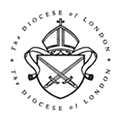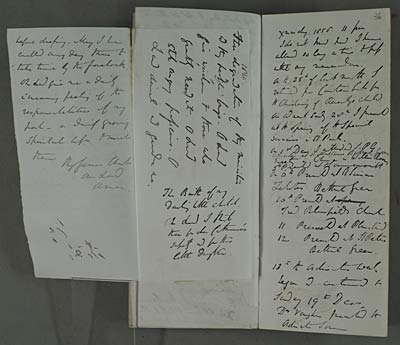Autobiographies, Biographies and Personal Testimony
There are various potential resources for finding out about the life or a particular historical individual. The first types of source are the first-hand accounts and personal testimonies from the past, for example, letters, journals and diaries. The second main varieties of source are biographies and autobiographies of individuals.
Personal Testimony
The letters, journals and diaries of many historical individuals have been deposited in local archives. You might just find archive material relating to the person that you are researching.
Papers of individual churchmen can be traced through the published guide produced by the Royal Commission on Historical Manuscripts in their Guides to Sources for British History, Series - no.6, Papers of British Churchmen 1780-1940 (HMSO 1987). This book lists the churchman’s name, area of ministry, and the composition of the collection and where they have been deposited. A copy of this report can be found in Lambeth Palace Library reading room [KA25.M1 (R)]. It is, however, far from comprehensive and is now a bit dated in what it records. For more up-to-date and comprehensive information you should search the National Register of Archives (NRA). You should also contact your local archive and library to find out if they have any diaries, journals and correspondence in their collections that have not been catalogued.
It may be the case that the clergyman you are researching did not leave a collection in their own name. If so, don’t give up just yet! An excellent place to search for individuals appearing in other collections is Access to Archives. Furthermore, the Lambeth Palace manuscript catalogue will help establish if any letters to or from the Bishop of London relating to the cleric survive there. The Blomfield papers, covering the early-mid 19th century, for example, are rich in letters to incumbents in parishes across the diocese of London.
Diaries can provide important insights into the life and thought of an individual. This diary, of Bishop Tait, is held at Lambeth Palace Library
Biographies and Autobiographies
The nineteenth century witnessed an explosion of life-writing (autobiographies, biographies, memoirs and ‘Lives and Letters’). You might be surprised by the obscurity of some individuals who were judged immediately after their death to merit some sort of memoir or who themselves felt it important to set down their own testimony. To find out if your individual left a published autobiography, you should search Copac with their name either in keyword search or in author. This will allow for a more detailed search. Remember to use several variations of a name (initials and surname, full name). Furthermore, a number of clerical diaries have recently been published for their rich local descriptions. Lambeth Palace Library will stock some clerical life writing, but it is worth checking your local public/local studies library as well.






